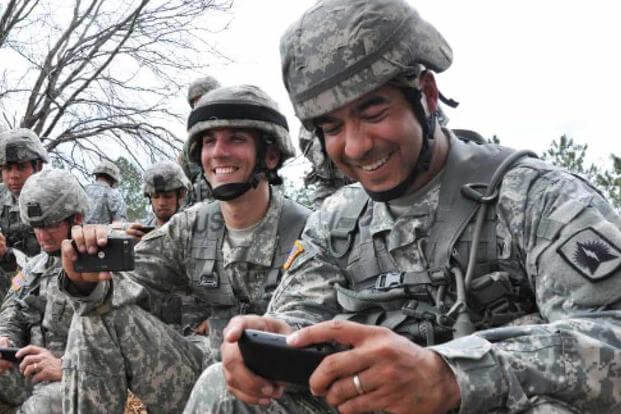You've likely heard it said: Who you know matters. Networking is a critical component of a successful transition, because your networking contacts are your supporters, mentors, advocates, advisers and connectors.
But what happens if you reach out to connect with a potential networking contact online and they don't accept your invitation? This rejection can feel like a personal dismissal and lead you to feel unworthy or insecure about your value. Someone does not want to connect with you online.
Instead of personalizing someone's reluctance to get to know you, consider these possible reasons they might have for rejecting your online invitation to connect:
1. You Don't Have a Profile Picture.
If your online profile photo shows a pet, favorite coffee beverage or, worse yet, the generic "cartoon head" that the site automatically generates as you build your profile, you could send the message that you might have something to hide.
Today, it is simple to ask someone with a camera phone to take your photo, in a non-distracting environment, and upload it to your profile. Your profile photo tells viewers several things about you:
- Are you friendly (e.g., smiling in your photo)?
- Intimidating (e.g., is your profile photo of you on the battlefield in combat gear)?
- Approachable (e.g., clear photo of you facing the camera)?
- Formal or casual (e.g., are you wearing a suit or sport shirt in the photo)?
- Mysterious or creative (e.g., the profile photo is black and white, tilted at an angle or otherwise "artistic" in nature)?
Your profile picture tells the viewer something about who you are and whether they might enjoy meeting you.
2. No Obvious Reason to Connect
When I receive a generic invitation to connect with someone online, I check to see whether:
- Our work, interests or passions align
- There is something in our past careers that could indicate a future opportunity, or ...
- There may be another obvious reason this person asked to be added to my network.
When nothing obvious exists, I'm less likely to automatically accept an invitation.
This point emphasizes the importance for the inviter to tell the invitee why the connection would be mutually beneficial. If you are transitioning from the military to a civilian career you might seek knowledge, mentoring or advice from the person to whom you wish to connect.
That's important to note in the invitation. Otherwise, they might not see a reason to connect and worry that you're just randomly collecting connections.
3. You Don't Have a Lot of Contacts.
This one is a hard one: How do you get more connections when you don't have a lot of connections? The perception of someone with few contacts on a social networking platform might be that they are collecting connections to improve their online status. "How could someone of such a high military ranking not know more people?" a civilian might ask.
While on active duty, you likely weren't focused on how many LinkedIn contacts you had acquired. But to the civilian employer, it could appear that you aren't popular or connected if you don't have a significant amount (such as 300+) contacts in your network.
Building your network should be a priority as you approach your separation date, and while the quality of your contacts matters, pay attention to the numbers as well.
4. We Have No Friends in Common.
Like No. 2, above, when you send an invitation to connect online, and if I don't immediately recognize your name or see an obvious reason to connect, I might look at people we know in common. This can be a tricky one for your potential connections, because spammers like to connect with many people quickly, leveraging the fact that you'll see common connections and accept the invitation.
While having no friends or contacts in common likely won't be grounds for the request to be completely dismissed, recognize that it might make it more challenging for your new contact to accept you into their network. Again, this is where a personalized invitation, spelling out your view of the mutual benefit, helps lessen those worries.
5. You Haven't Posted Anything.
Social networking is about engaging with others to create conversation, learn from each other's experiences and networks, and share resources. If you fail to post content, share information or highlight your value proposition to your online contacts, you make it harder for someone new to want to join your network.
Posting content includes sharing photos, articles, stories, information, successes of other people and timely news. As you share content, be sure to add your perspective:
- Why do you think the photo is funny?
- Why is this news article important?
- What did that person do that you believe deserves recognition?
Your perspective gives your network of contact insight into what you believe and know, and builds your reputation.
Navigating your online community of contacts takes time, understanding and practice. Your online networks are valuable because they can connect you to other people and opportunities, they can provide you with insights and information, and even serve as mentors and advisers as you build a post-military career.
Want to Know More About the Military?
Be sure to get the latest news about the U.S. military, as well as critical info about how to join and all the benefits of service. Subscribe to Military.com and receive customized updates delivered straight to your inbox.












